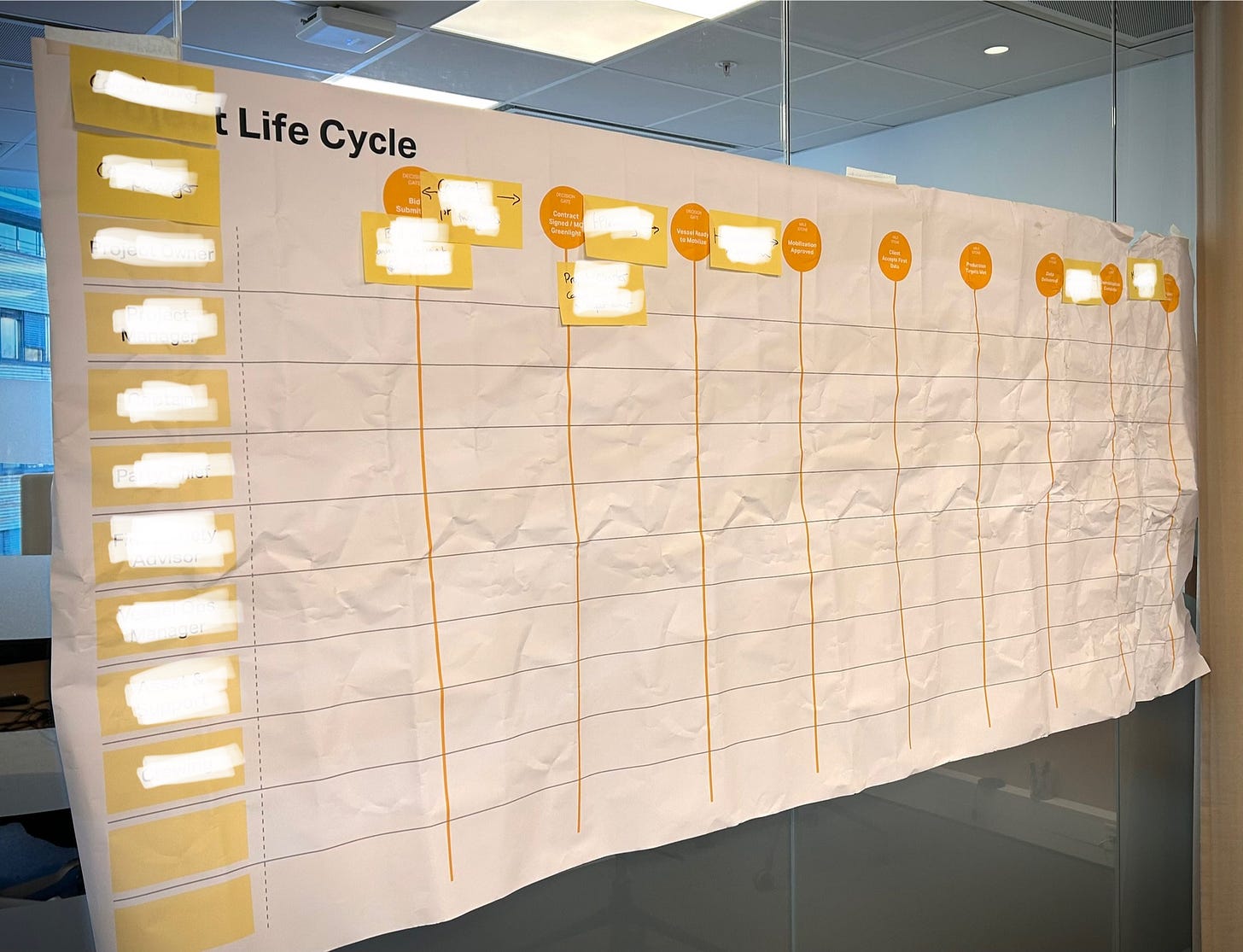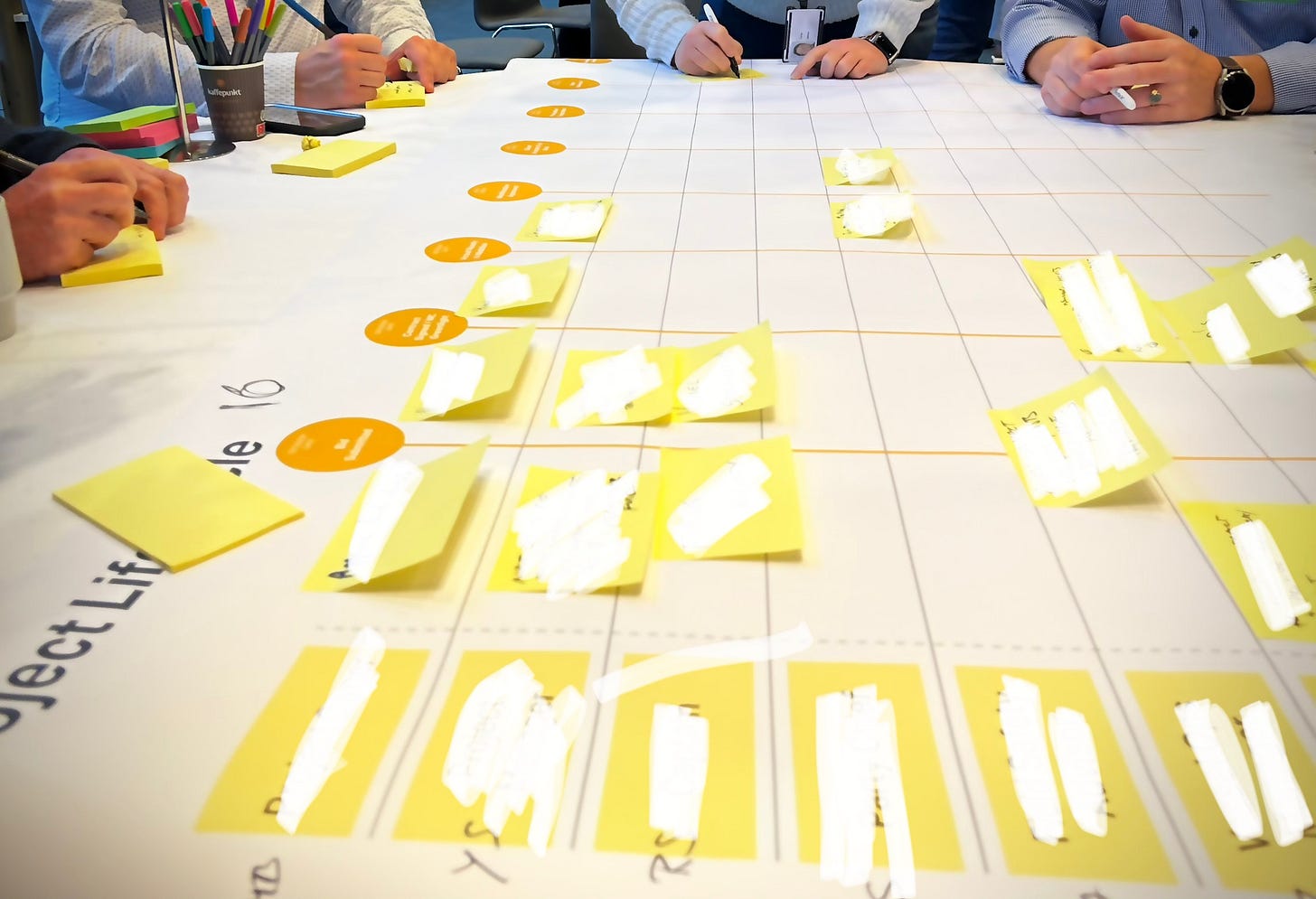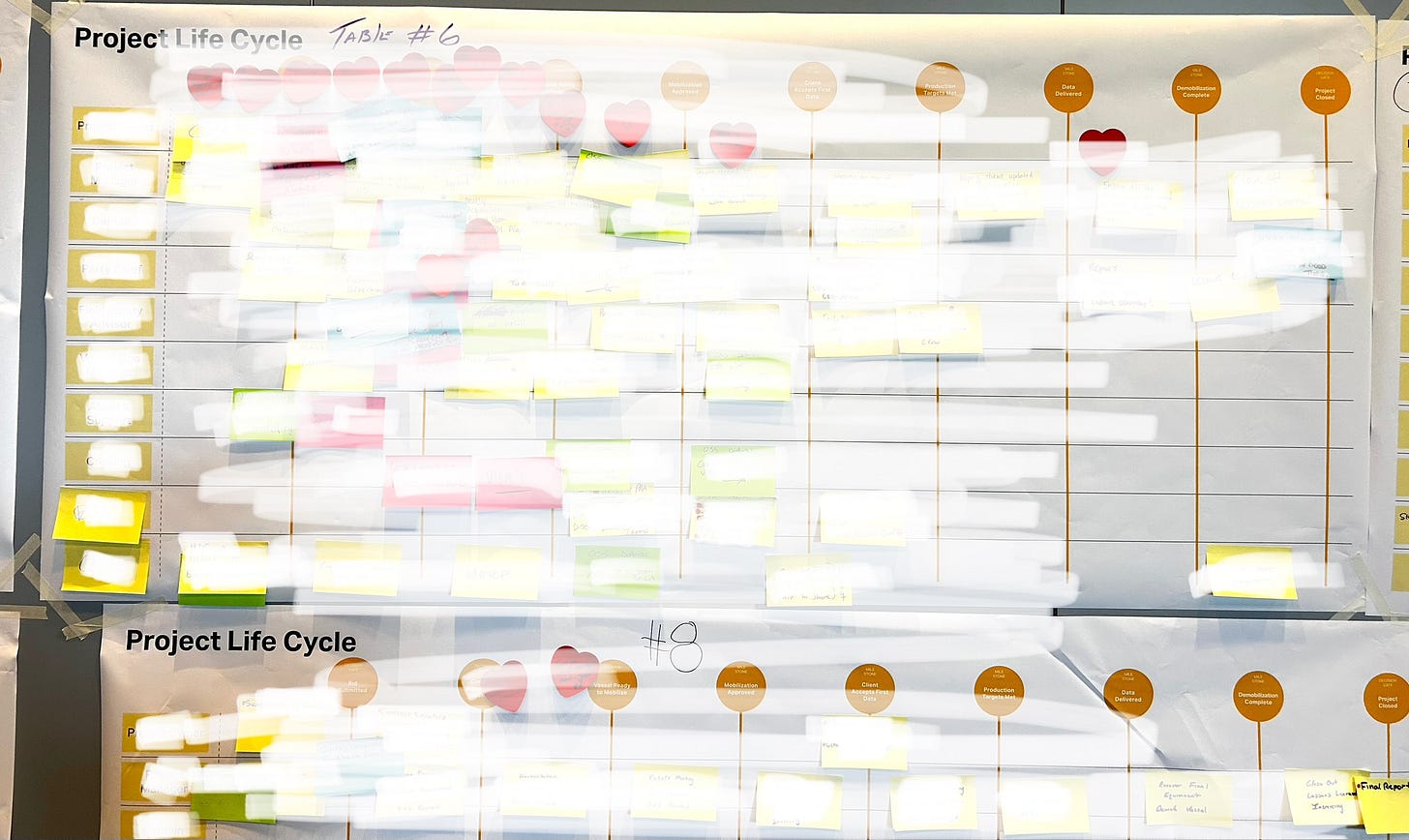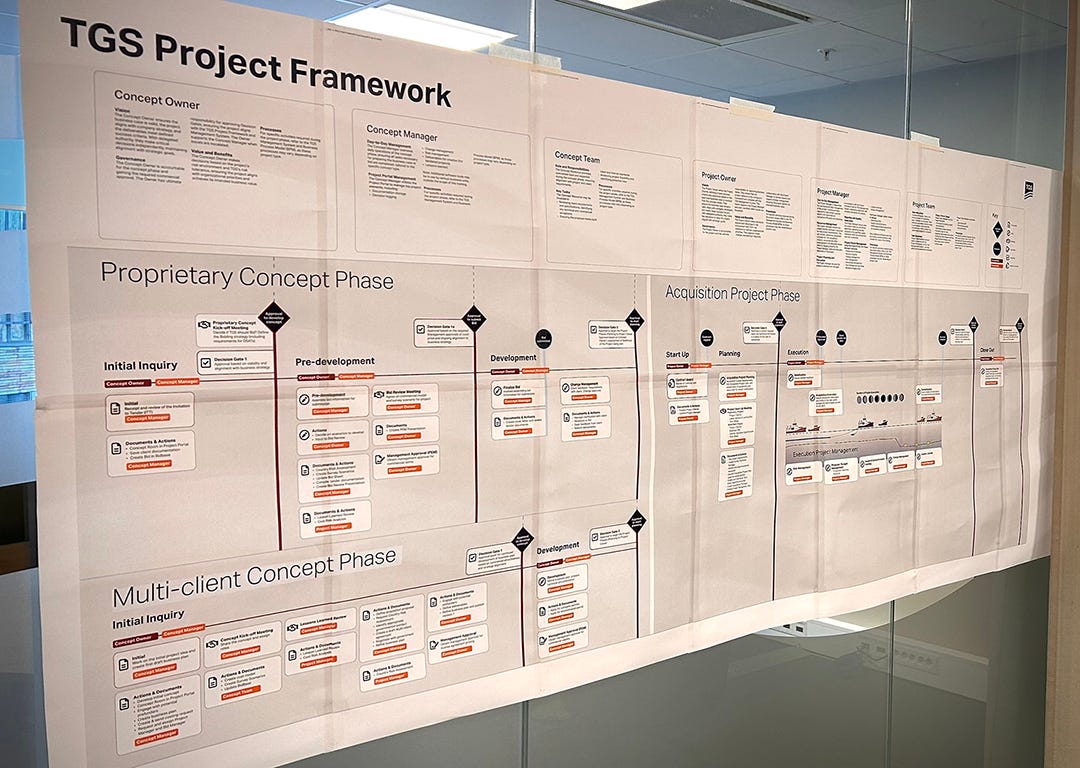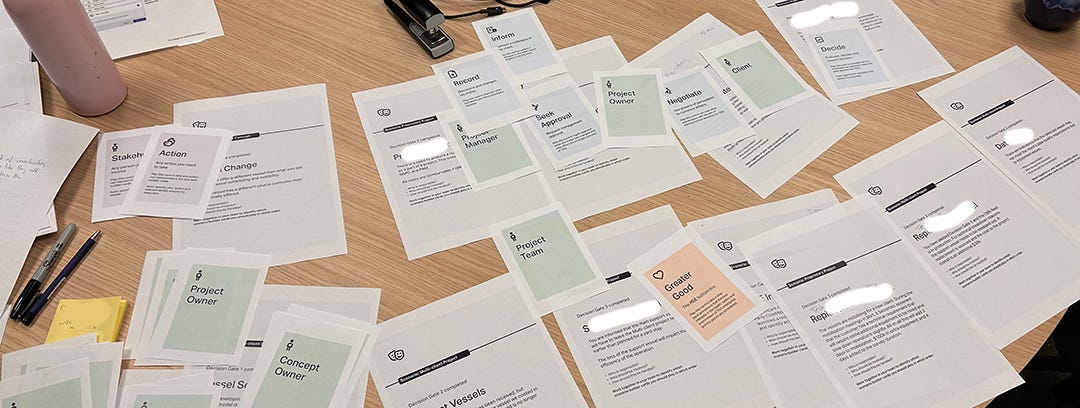Transforming Collaboration: From Process Mapping to Gamified Learning in B2B Teams
Learn how a participatory, gamified workshop design bridges gaps in roles and responsibilities, aligning cross-disciplinary teams for improved collaboration and great conversations.
In today’s complex and technical B2B environments, large-scale organizational changes, such as mergers or expansions, can disrupt established workflows. Teams are often restructured, with employees assuming new roles and responsibilities. This transition demands not only a reevaluation of processes but also a deeper understanding of each other’s contributions to the value chain. Recognizing this challenge, I partnered with the Quality team to design a participatory learning workshop that fosters collaboration, clarity, and smoother teamwork.
Workshop Evolution: From Prototype to Gamified Process Mapping
In November, I facilitated a seminar for 128 participants, aiming to help operational teams understand each other’s roles, technologies, and service offerings. The initial workshop revolved around a simple, blank process poster that served as a framework for group discussions. Cross-disciplinary teams of six to ten participants mapped out responsibilities, identified frustrations, and proposed solutions. This collaborative approach proved highly effective, sparking insightful conversations and generating positive feedback. Many participants expressed that this workshop should be replicated across the organization.
Building on this success, I’ve refined the format for an upcoming session in Houston. The new version transitions from a blank poster to a detailed process map that highlights key decision gates and workflows. This shift aligns with the organization’s established guidelines, providing clarity while allowing flexibility for real-world deviations. By layering visual elements, the updated map offers a structured yet intuitive way for participants to engage with the content.
Introducing Gamified Scenarios and Action Cards
To enhance interactivity, I’ve incorporated gamification into the workshop. Participants will tackle realistic scenarios where processes deviate from the framework. Each table will receive a scenario and a set of “scenario builder cards” featuring roles, responsibilities, and potential actions (e.g., escalate, inform, negotiate). Teams will collaborate to determine the best course of action, laying out their proposed solutions within 5-10 minutes.
Afterward, one team will present their solution to the room, sparking reflection and discussion among other groups. This iterative process not only deepens participants’ understanding of their roles but also fosters empathy and problem-solving skills. The tactile, visual nature of the cards encourages engagement and creativity, making the learning experience memorable and impactful.
Future Plans
The ultimate goal is to leave behind a scalable, gamified tool that teams can use independently to navigate complex scenarios. As the organization continues to evolve, this workshop model will serve as a cornerstone for fostering collaboration, clarifying responsibilities, and driving alignment across diverse teams.
Top Tip
Gamification transforms learning into an engaging and impactful experience. Incorporate hands-on tools like scenario and action cards to encourage meaningful conversations, build empathy, and create a shared understanding of roles and processes. Keep scenarios realistic and solutions collaborative to foster alignment and drive positive outcomes in cross-disciplinary teams.


